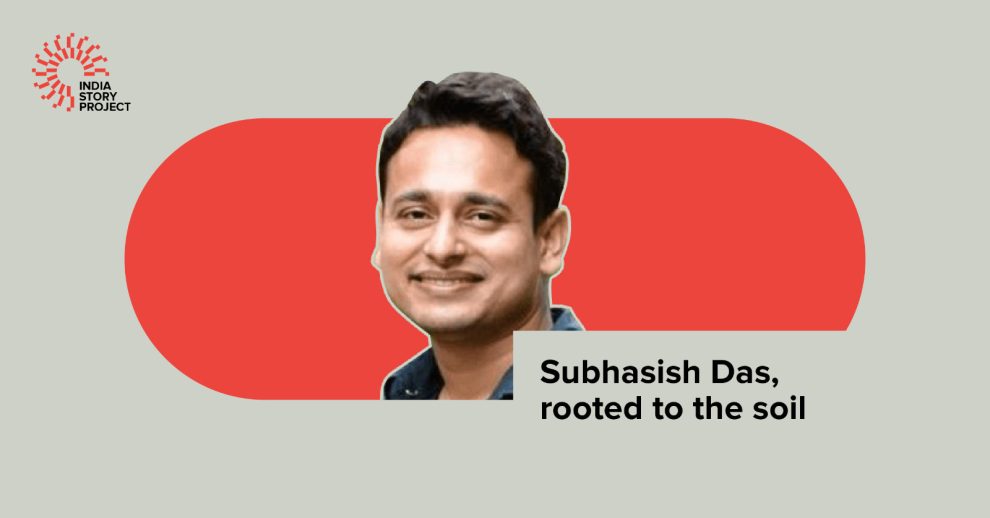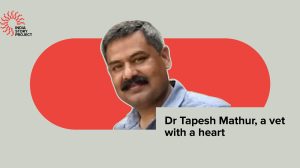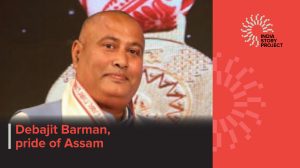ISP Kolkata Bureau
Researchers on soil and its ecosystem relationship are rare and to have one such budding scientist in the north-east of India is a pride for the nation. Media lovingly calls him the researcher of trees, land and soil in Mizoram.
Government of India’s INSPIRE fellowship awarded Dr Subhasish Das is a young mind at work in a remote lab in Aizawl doing considerable work in the field of understanding the relationship between soil and its corresponding flora. He is a faculty of Environmental Studies at Pachhunga University College of Mizoram University. His small lab may not be the best in the world but is one of the best to look up to for future landmark studies.

Featured in the science communication platform SciRio, Dr. Das, a keen observer of cultural and natural richness of north-eastern India, specialises in the study of topography and structure of urban soil in north-east India.
Born and brought up in a business family, Subhasish credits his mother for inspiring him to study science to take it up as an area of interest. Hailing from Nagaon in Assam, he had his schooling in his own city before moving out for higher studies. He pursued his graduate studies from Nowgong College in Gauhati in Zoology where he was inspired by his professors to become a scientist.
He continued his training in forestry from the North Eastern Regional Institute of Science and Technology, Arunachal Pradesh. Here he studied the properties of wood obtained from the Duanbanga Gradiflora or the Khokan tree for his MSc thesis project and won the best research project award and university Gold Medal.
Subhasish joined the Indian Institute of Technology (IIT), Guwahati, as a junior research fellow before applying for a PhD programme in a Ministry of Urban Development (MoUD) funded project. He researched on the ecological carrying capacity in specific regions, the natural ability of an ecosystem to support life. He also spent considerable time understanding lateritic soil and its influence on plant secondary metabolites. His work raises concern over rapid urbanisation compromising soil stability.

He did his doctoral studies in Environmental Sciences at Tezpur University, Assam where he developed techniques to enhance solid waste management using vermicomposting, a process in which earthworms decompose solid waste to manure. His research consolidated the importance of earthworms in removing toxic metals species like cadmium and zinc from municipal solid waste to produce clean vermicompost. The seminal work of Subhasish is still to come. He is an inspiration to many young minds to take up research as a vocation for better living and sustainability.





Add Comment